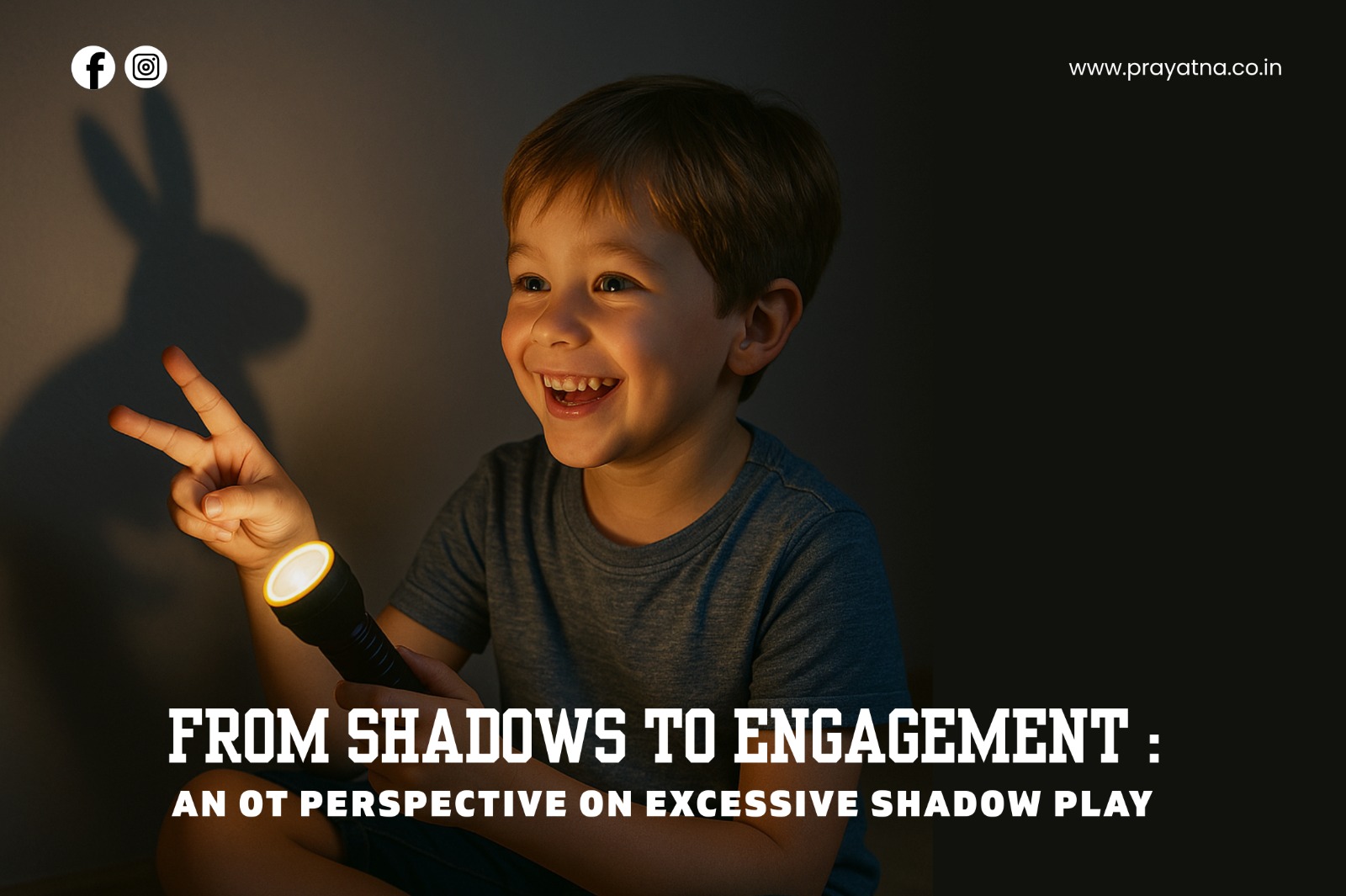
Shadow play is a fun and educational activity for children that involves using light and shadows to create shapes, stories, and imaginative scenes. It helps develop creativity, cognitive skills, and hand-eye coordination while also teaching basic concepts of light and shadow.
Shadow play is generally a harmless and beneficial activity for children, but it can become a concern in certain situations, especially among children who may also be undergoing the best speech therapy in Kerala due to developmental delays.
Some children may develop a fear of shadows, especially if they see scary shapes or associate shadows with something frightening (e.g., monsters at night).
If a child shows excessive fear or anxiety about shadows, it’s important to reassure them and help them understand that shadows are harmless.
If a child becomes overly fixated on shadows to the point that it disrupts their daily activities, sleep, or social interactions, it may indicate an underlying issue, such as sensory processing difficulties or anxiety.
If the child repetitively engages in shadow play (self stimulation/stimming) without interest in other activities, it could be a sign of a developmental concern that may need professional evaluation. This is sometimes observed in children who are also receiving the best speech therapy in Kerala, as overlapping concerns can occur.
If a child isolates themselves to engage in shadow play excessively or uses it as a coping mechanism to avoid social interactions, it may be worth exploring any underlying emotional or social difficulties.
Note : If a child is excessively engaged in shadow play to the point that it interferes with daily life, social interactions, or learning, occupational therapy (OT) can help by addressing underlying sensory, behavioral, or cognitive concerns.
Occupational Therapy Strategies to Reduce Excessive Shadow Play
Conclusion:
Reducing excessive shadow play in children, especially those with autism or sensory processing differences, requires a structured and supportive approach. Occupational therapy can help by identifying the underlying reasons for the behavior and providing alternative sensory inputs, structured play, and behavioral strategies. By gradually introducing new activities, setting boundaries, and supporting emotional regulation, children can develop more balanced play habits and social engagement. If shadow play becomes distressing, a multidisciplinary approach involving therapists and caregivers can ensure the child receives the best possible support for their overall development.
Anakha Pisharody
Occupational therapist
MOT Paediatrics
Copyright ©️ Prayatna Centre for Child Development. All right Reserved – Powered by INSTATEC